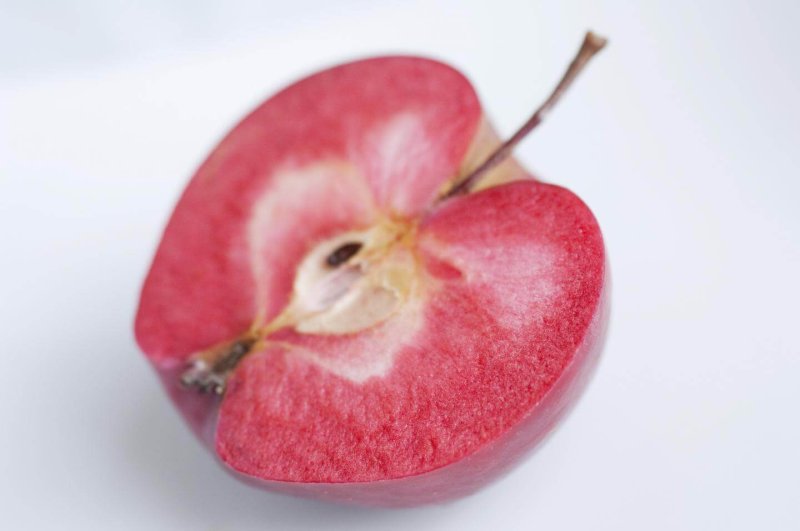The red-fleshed apples developed by Plant and Food Research’s scientist Professor Andrew Allan and his team are so contentious they’re not allowed to eat them in New Zealand.
…
The cores were removed from the apples so no seeds were present. They were triple-bagged and sealed. Phytosanitary certificates were gained….to move the apples from their glasshouse….to the United States. Allan and the science team flew the precious cargo to San Francisco where a taste-testing panel of 50 people waited….Two years spent trying to gain approval to taste-test them outside the glasshouse [in New Zealand] were unsuccessful.
…
With their maroon-skin, and red-tinged flesh, [Allan’s apples] look different to any commercially grown apple. The genetic modification which has created them combined two different apples. The Royal Gala was chosen for flavour, and a small red-fleshed wild crab apple….for its high-levels of anthocyanin, an antioxidant….
…
Allan is working within….a 23-year-old piece of legislation which regulates genetically modified or edited organisms. Since the act was written science has advanced. Techniques like Crispr have emerged, where it is possible to edit DNA without inserting genetic material from another species.
…
[Allan] doesn’t know when….the regulations that forced the team onto a flight to San Francisco will change. “It’s a shame that I can’t get four million people through this greenhouse and explain to them how wonderful the stuff we’re doing is. It’s so exciting….Read full, original article: The story of genetics and Mt Albert’s forbidden fruit































